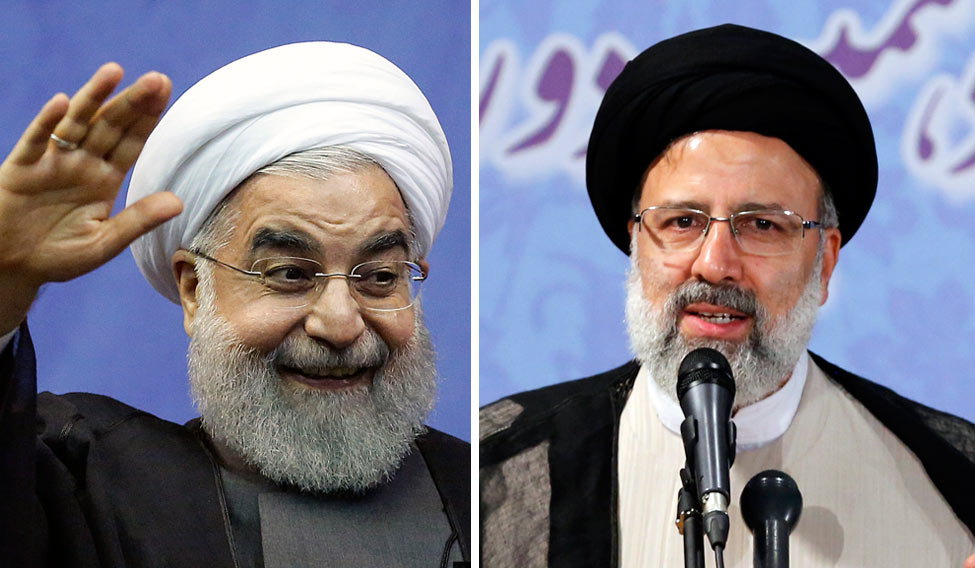Is Iran a democratic state, one might wonder. With a democratically elected president and parliament, it might seem so but the presence of the Supreme Leader is what queers the pitch. He is more powerful than the president and has the final word on the country's policies.
As Iran goes to poll today to elect its next President, once again it is the Supreme Leader Ayatollah Ali Khamenei who might have the decisive say in the final result. The incumbent President Hassan Rouhani has history on his side—every sitting President has won a second term since 1981. But his closest rival Ebrahim Raisi is considered to be close to Khamenei and is even tipped to succeed him as the next Supreme Leader. Khamenei, reportedly, called Raisi a "trustworthy and highly experienced" person, which is seen by many as a stamp of approval on his candidature.
The 68-year-old Rouhani is a moderate not only in his beliefs but also in his manners. A PhD holder in law, the soft-spoken and smiling Rouhani is credited with stabilising the country's economy and reining in inflation. After coming to power in 2013, he had a historic telephone call with US President Barack Obama—the first direct talks between American and Iranian leaders since the 1979 Islamic revolution. It was followed by the nuclear deal with the west in 2015, which led to the partial lifting of international sanctions on Iran in return for curtailing the country's nuclear programme. However, recent surveys have shown the people are not fully convinced about the gains Iran has made under Rouhani. Also, his campaign promise of social and political freedom remains unfulfilled, they say.
 Iran's Supreme Leader Ayatollah Ali Khamenei casts his vote during the presidential election in Tehran | Reuters
Iran's Supreme Leader Ayatollah Ali Khamenei casts his vote during the presidential election in Tehran | Reuters
The hardliners and conservatives, along with Khamenei, too, have been critical of Rouhani over the nuclear deal. They believe that the incumbent president has been too accommodating. With Rouhani sounding a warning to the Islamic Revolutionary Guards Corps (IRGC) to stay away from the presidential elections and politics, the battle lines have been clearly drawn. The special forces unit is tasked with the protection of the country, and answers to the Supreme Leader.
Raisi is believed to have established close ties with the senior leaders of IRGC while he was at the judiciary—he was the deputy chief justice and attorney general. There might be another reason for the IRGC backing Raisi's candidature—the group has vast economic clout and having a candidate of its choice would be beneficial for them in the long run. The supporters of the 56-year-old hardline cleric term the presidential poll as a test run for a greater role in future for Raisi—that of succeeding Khamenei as the Supreme Leader. Raisi is the head of Astan Quds Razavi, one of Iran's wealthiest religious foundations, which manages Iran’s holiest shrine, Imam Reza.
One black mark that has been exploited by his detractors is that Raisi was a member of the panel that was involved in the execution of thousands of dissidents in 1988. However, Raisi had been shrewd enough to paper over the accusations with allegations of corruption against Rouhani and populist promises like monthly cash handouts to the poor.
So, will it be the white-turbaned Rouhani or the black-turbaned (which signifies that he is a descendant of prophet Muhammad) Raisi? Only time will tell. With Donald Trump—a vocal critic of Iran—as the president of the United States, there are clouds of uncertainty over the future of the nuclear deal. A hard-liner and conservative president in Iran might jeopardise not only the deal but also the country's diplomatic relations with the rest of the world.





